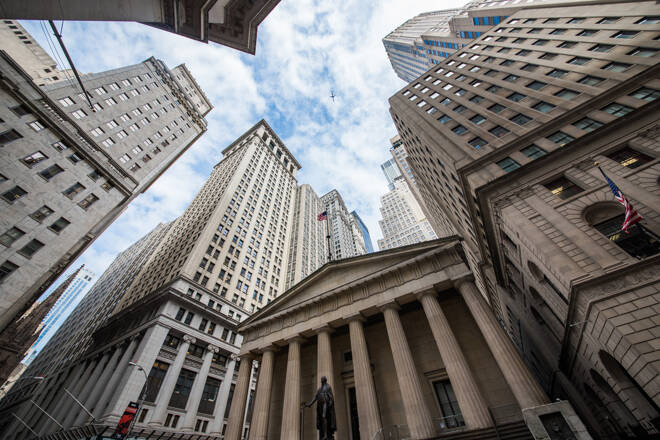Advertisement
Advertisement
Delta Airlines Posts Full-Year Loss for First Time Since 2009 But CEO Bastian Eyes Recovery in 2021
By:
Delta Airlines, one of the major players in the United States aviation industry, reported a loss for the fourth consecutive time in the December quarter and a full-year 2020 loss for the first time in 11 years as COVID-19 travel restrictions significantly dented air travel demand but CEO Ed Bastian said he expects 2021 to be the year of recovery.
Delta Airlines, one of the major players in the United States aviation industry, reported a loss for the fourth consecutive time in the December quarter and a full-year 2020 loss for the first time in 11 years as COVID-19 travel restrictions significantly dented air travel demand but CEO Ed Bastian said he expects 2021 to be the year of recovery.
The Airline company which provides scheduled air transportation for passengers and cargo reported a quarterly adjusted loss of $2.53 per share, worse than the Wall Street consensus estimate of $2.47 per share loss.
“The current operating environment will remain incredibly challenging as demand fluctuates with COVID-19 headlines & vaccine rollout. The work Delta has done on costs should provide leverage once demand improves. Delta is bullish on a second-half recovery, and there are certainly encouraging signs, but we are cautious near-term as vaccine distribution has been disappointing,” noted Helane Becker, equity analyst at Cowen and Company.
“We are reiterating our Market Perform rating on the common shares of Delta Air Lines. We are maintaining our $44 price target, which is based on 10x 2022E EPS. The air travel industry continues to be depressed by the ongoing coronavirus pandemic and related restrictions.”
The Atlanta-based airline said its revenue slumped 65.3% to $3.97 billion from a year ago, worse than the market expectations of $3.59 billion. The company reported December quarter 2020 GAAP pre-tax loss of $1.1 billion and loss per share of $1.19 on total revenue of $4.0 billion.
For full-year 2020, the company reported GAAP pre-tax loss of $15.6 billion and loss per share of $19.49 on total revenue of $17.1 billion. Full-year 2020 adjusted pre-tax loss of $9.0 billion and adjusted loss per share of $10.76 on adjusted operating revenue of $15.9 billion.
“While our challenges continue in 2021, I am optimistic this will be a year of recovery and a turning point that results in an even stronger Delta returning to revenue growth, profitability and free cash generation,” said Ed Bastian, Delta’s chief executive officer.
Following this optimism, Delta Airlines shares closed 2.5% higher at $41.47 on Thursday. However, the stock fell more than 30% in 2020.
“Despite the pandemic, we continue to see clear reasons to expect a resounding recovery post-vaccine in both leisure and business travel. We are maintaining our $43 per share fair value estimate for Delta,” said Burkett Huey, equity analyst at Morningstar.
Delta Airlines Stock Price Forecast
Eleven analysts who offered stock ratings for Delta Airlines in the last three months forecast the average price in 12 months at $46.33 with a high forecast of $54.00 and a low forecast of $40.00.
The average price target represents an 11.72% increase from the last price of $41.47. From those 11 analysts, three rated “Buy”, seven rated “Hold” and one rated “Sell”, according to Tipranks.
Morgan Stanley gave a base target price of $55 with a high of $86 under a bull scenario and $29 under the worst-case scenario. The firm currently has an “Overweight” rating on the airlines’ stock.
Several other analysts have also recently commented on the stock. JP Morgan lowered the target price to $49 from $51. Cowen and company cut to market perform from outperform; raises target price to $44 from $36. BofA Global Research raised the price objective to $42 from $38.
In addition, Credit Suisse upped the target price to $47 from $38. UBS raised the target price to $47 from $32. Citigroup upped price objective to $48 from $38. Jefferies initiates with a hold rating and a price target of $40.
Analyst Comments
“4Q results were an expected tough end to a historically bad year for the industry, but a decent 1Q guide and bullish commentary on the call about the potential for a traffic rebound, particularly in corporate, reinforce our bullish view on the Airline space and our OW on Delta Airlines (DAL) as our top Legacy pick,” said Ravi Shanker, equity analyst at Morgan Stanley.
“DAL has some of the strongest customer satisfaction numbers among the other Legacy peers, while also commanding a higher PRASM, making it our preferred Legacy carrier. With ample liquidity, we see limited liquidity risk here. Additionally, we continue to see Delta Airlines’ (DAL) international alliances and partnerships as strategic assets, despite recent writedowns.”
Upside and Downside Risks
Risks to Upside: 1) COVID-19 Vaccine timing. 2) Business Travel Recovery. 3) Industry Rationalization & Fare Stability – highlighted by Morgan Stanley.
Risks to Downside: 1) COVID-19 Second Wave. 2) Slower International Travel Rebound. 3) DAL has a significant underfunded pension liability at 78% funded status.
Check out FX Empire’s earnings calendar
About the Author
Vivek Kumarauthor
Vivek has over five years of experience in working for the financial market as a strategist and economist.
Advertisement
